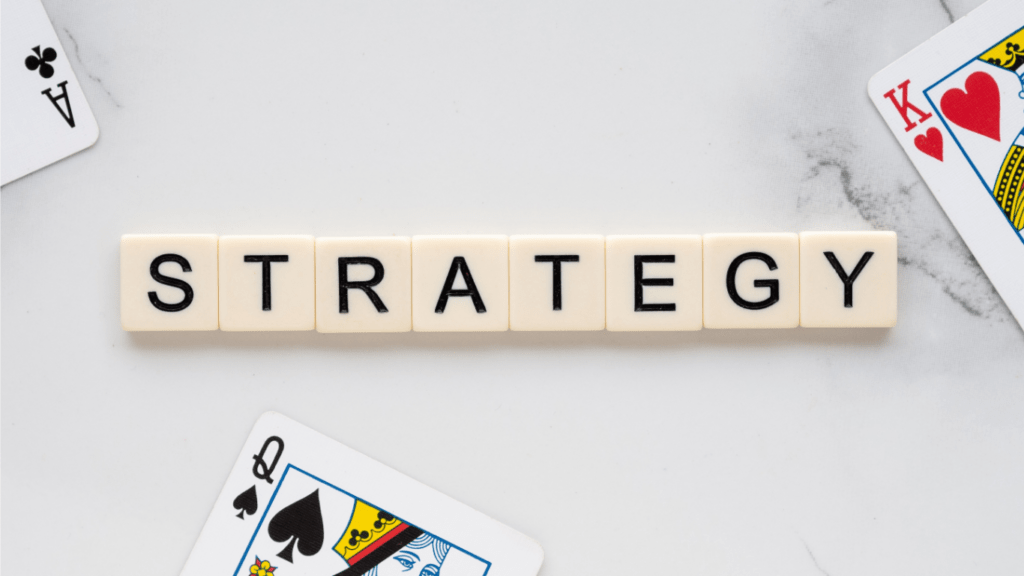Understanding Smart Gambling
Smart gambling combines strategic decisions with well-informed choices to maximize potential winnings while minimizing losses. Smart gambling principles guide players to be more analytical rather than relying solely on luck. Let’s break down these principles:
Risk Management
Effective risk management starts with setting a budget for gambling activities. Allocate only the money that you can afford to lose without affecting your financial stability. For example, if monthly entertainment expenses are $200, set aside a portion exclusively for gambling. Stick to this budget regardless of any winning or losing streaks.
Additional risk management techniques:
- Bet Sizing: Control the size of each bet to ensure longevity. Opt for smaller bets to extend playtime and mitigate losses.
- Diversification: Spread bets across different games or events to avoid significant losses in one area.
Knowledge Acquisition
Educating oneself about the rules and strategies of various games is vital. For instance, understanding the odds improves decision-making in games like blackjack or poker. Study house edges, game rules, and optimal strategies before placing any bets. Avail resources like books, online tutorials, and forums for comprehensive learning.
Key learning areas:
- Game Rules: Know the detailed rules to avoid costly mistakes.
- Odds and Probability: Understand the likelihood of outcomes to make informed bets.
- Advanced Strategies: Learn and apply advanced tactics specific to each game for better odds.
Emotional Control
Maintaining composure during gambling is paramount. Emotional decisions often lead to escalated risks and higher losses. If you face consecutive losses, resist the urge to chase them with irrational bets. Take breaks to cool off if feeling frustrated or overly excited. Establish fixed times for gambling sessions to avoid overextension.
Tips for emotional control:
- Breaks: Regularly take short breaks to maintain focus.
- Limit Session Length: Set time limits for each gambling session.
- Avoid Chasing Losses: Accept losses as part of the game without trying to recover them immediately.
Realistic Goal Setting
Set achievable goals for each gambling session. Instead of targeting large, unrealistic wins, aim for modest, consistent earnings. Define win-loss limits beforehand; know when to stop whether winning or losing. Evaluating performance against set goals helps in tweaking and improving strategies over time.
Framework for goal setting:
- Win Goals: Decide on a realistic profit margin for a session.
- Loss Limits: Predefine the maximum amount you are willing to lose.
- Performance Review: Regularly assess outcomes to adapt strategies.
By integrating these smart gambling principles, players enhance their opportunity for success and ensure a more responsible and enjoyable gambling experience.
The Basics of Gambling Strategies
Understanding the basic principles of gambling strategies is crucial for any gambler. Below are key elements to grasp before diving deeper into smart gambling techniques.
Essential Gambling Terms
Certain terms are foundational in gambling strategies. Here are a few critical ones:
- House Edge: This represents the percentage that the casino expects to win from each bet over time. For example, a house edge of 5% means the casino expects to keep $5 for every $100 wagered.
- Bankroll: This is the total money you allocate for gambling activities. Managing your bankroll effectively helps in sustaining your gambling sessions and prevents excessive losses.
- Odds: These reflect the probability of different outcomes. For instance, in roulette, the odds of winning on a single number bet are 35:1.
- Payout: The payout is the amount the casino pays out to winners. Different games and bets have various payout ratios, such as blackjack’s 3:2 payout for a natural blackjack.
- Gambling is Purely Luck-Based: While luck plays a role, strategy and skill are equally important in games like poker and blackjack. Employing the right strategies can tilt the odds in your favor.
- Betting Systems Guarantee Wins: Systems like Martingale or Fibonacci can’t eliminate the house edge. Effective gambling strategies involve more than just bet size manipulation.
- Increasing Bets Recovers Losses: This approach, known as chasing losses, often results in more significant losses. Instead, sticking to a predetermined betting plan is more effective.
Components of a Smart Gambling Strategy

A smart gambling strategy consists of several key components that work together to improve your chances and minimize losses.
Bankroll Management
Effective bankroll management ensures that you stay in control of your finances. Allocate a specific amount of money dedicated to gambling and stick to it. For example, if you set aside $500, you shouldn’t dip into other funds. Divide your bankroll into smaller units for each gaming session, protecting yourself from significant losses in one go.
Game Selection
Choosing the right games impacts your success rate. Select games where your skills can shine, like poker or blackjack, rather than luck-based games, such as slot machines. Research the house edge for different games; lower house edge games like blackjack offer better long-term potential.
Odds and Probabilities
Understanding odds and probabilities helps you make informed decisions. Learn the specific odds for the games you play and use this knowledge to assess whether the risk is worth the potential reward. For instance, in roulette, betting on a single number has a 1 in 38 chance of winning, while betting on red or black offers nearly a 50/50 chance.
Developing Your Personal Strategy
Creating a smart gambling strategy involves several key steps. Personalizing these strategies increases the chances of success and ensures a more enjoyable experience.
Assessing Your Goals
Identifying clear gambling goals helps manage expectations. Some gamblers focus on short-term wins, while others aim for long-term profitability. Defining these goals clarifies the path and decisions necessary to achieve them. Regularly reviewing and adjusting goals keeps the strategy relevant and in line with evolving skill levels and experiences.
Setting Limits
Establishing limits prevents excessive losses. Daily loss limits and time limits are effective tools for maintaining control. Financial limits ensure that only disposable income is used, protecting other financial responsibilities. Consistently adhering to these limits reduces emotional and financial stress.
Analyzing Past Performance
Reviewing previous gambling performance identifies patterns and areas for improvement. Keeping detailed records of wins, losses, and decisions highlights strengths and weaknesses. Tools like spreadsheets or gambling journals facilitate this analysis. Learning from past experiences informs future strategies and enhances decision-making processes.
Tools and Resources to Enhance Your Strategy
Enhancing a smart gambling strategy involves using various tools and resources. Leveraging technology, literature, and expert guidance can significantly boost one’s gambling performance.
Software and Apps
Utilizing software and apps provides real-time data and analytics for better decision-making. Several mobile apps assist with tracking bets, calculating odds, and managing bankrolls. Apps like Bet Tracker record bets, providing insights into performance trends. Odds calculators, such as AceOdds, offer quick calculations to assess potential bets. Advanced software, including poker solvers like PioSolver, helps analyze game scenarios and develop optimal strategies.
Books and Guides
Turning to books and guides offers in-depth knowledge from seasoned gamblers and experts. Titles like “The Theory of Poker” by David Sklansky detail strategies across various poker variants. “Beat the Dealer” by Edward O. Thorp provides insights into blackjack card counting. Comprehensive gambling guides cover multiple games, offering strategies, rules, and probabilities. Leveraging these resources can refine one’s understanding and tactical approach to gambling.
Common Mistakes to Avoid
Implementing a smart gambling strategy ensures better outcomes. However, many common mistakes can hinder success.
Ignoring Bankroll Management
Many gamblers neglect bankroll management, which leads to unnecessary losses. Without setting a budget or deciding how much to wager, one might quickly run out of funds. Always decide on the amount to bet based on your total bankroll.
Chasing Losses
Chasing losses, the practice of continuing to gamble to recover previous losses, often results in even larger deficits. It’s crucial to accept losses as part of the game and avoid emotional decision-making. Stick to your predetermined limits.
Failing to Understand the Game
Entering a game without adequate knowledge decreases the chances of winning. Understanding rules, strategies, and odds before betting is essential. For instance, learning optimal strategies for blackjack or understanding poker hand rankings are foundational.
Overconfidence
Overconfidence can lead to risky behavior. Even seasoned gamblers face losing streaks. Recognize that gambling outcomes are uncertain, and maintain a balanced approach to betting. Avoid making large bets based on short-term success.
Disregarding Odds and Probabilities
Some gamblers overlook the importance of odds and probabilities. Analyzing these factors provides insights into potential outcomes. For example, in roulette, knowing the odds of landing on a single number versus choosing red or black helps in making informed decisions.
Not Setting Time Limits
Spending excessive time gambling can lead to fatigue and poor decisions. Setting time limits prevents continuous play without breaks, helping to maintain focus and avoid burnout. Taking regular breaks can help maintain a clear mind and better judgment.


 Gary Coxtersons brought his technical expertise to the development of Hype Gamble Match, ensuring the platform’s robust functionality and smooth operation. With a deep understanding of web development and platform integration, Gary was pivotal in building the backend systems that allow for real-time updates and a seamless user experience. His contributions have made it possible for users to access the latest betting odds, insights, and strategies effortlessly, supporting the overall success of the platform.
Gary Coxtersons brought his technical expertise to the development of Hype Gamble Match, ensuring the platform’s robust functionality and smooth operation. With a deep understanding of web development and platform integration, Gary was pivotal in building the backend systems that allow for real-time updates and a seamless user experience. His contributions have made it possible for users to access the latest betting odds, insights, and strategies effortlessly, supporting the overall success of the platform.